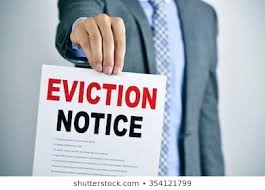Since the start of the Lockdown, much fake news have circulated that the SA Government has suspended the payment of residential rentals to their lessors or even that landlords are entitled to claim their full rentals and evict their non-paying tenants.
The mainstream media was also not very helpful at all where articles in relation to this sensitive subject were leaning towards favouring the lessor and the tenants advised to rather pay their rentals. Unfortunately all these articles that I have read concentrated mostly on the content of the residential lease agreement also referring to so called “force majeure” clauses which must be present, but none of these articles slightly referred to the rights of tenants in terms of the Consumer Protection Act, 2008 (the “CPA”) in these cases we find ourselves in now and their ability to pay or not to pay their rent.
Since 1 April 2020 our organisation Liberty Fighters Network (LFN) was inundated with complaints from tenants who claim that their lessors refuse to make any arrangement with them for not being able to pay their full rentals and some lessors, like they used to operate, disconnected electricity or terminated leases with one even receiving a letter from Vermaak Marshall Wellbeloved Incorporated (the infamous eviction guru attorneys of Johannesburg) threatening this man with participating in a rental boycott allegedly orgastrated by LFN off course not taking into consideration that many tenants in the highrise residential Metro Building in Bree Street, Johannesburg forming part of the empire of property mogul Mark Stiller, have to keep on to their monies to survive and not because they don’t want to pay rent.
Although many lessors resort to the disconnection of electricity and water or lockouts as practice without anything happening to them, it still remains a criminal offense to do with the SA Police Services incorrectly labeling it as a mere civil matter. The Prevention of Illegal Eviction from and Unlawful Occupation of Land Act, 1998 (the “PIE Act“) clearly stipulates in Section 8 thereof that “No person may evict an unlawful occupier except on the authority of an order of a competent court” and that “Any person who contravenes a provision of subsection (1) or (2) is guilty of an offense and liable on conviction to a fine, or to imprisonment not exceeding two years, or to both such fine and such imprisonment” clearly implying that any act in contravention of this falls under the protection of the Police.
But what about disconnection of electricity or water?
The Constitutional Court has recognised in Motswagae and Others v Rustenburg Local Municipality and Another 2013 (2) SA 613 (CC) para 12 that an eviction does not have to consist solely in the expulsion of someone from their home, it can also consist in the attenuation or obliteration of the incidents of occupation. In that matter, the municipality illegally interrupted water to the applicable properties with the intention to make occupation unbearable and force the occupiers to vacate without first having obtained an eviction order. This, relatively unknown important Constitutional Court case, implies that disconnecting utilities to a tenant does fall within the boundaries of an eviction as intended in the PIE Act and resultantly if a lessor does not have an eviction order to disconnect utilities, it will be regarded as an illegal eviction which can be criminally prosecuted.
Last year 2019 the Magistrates Court in Johannesburg did send a landowner to 3 months’ imprisonment for the illegal eviction of his occupiers without a court order and therefore the relief is there to tenants who suffer this same fate.
It is indeed true that some tenants are also exploiting the Lockdown and claim that they are unable to pay their rentals, but they did get their full salaries and also will not have a problem getting paid until the Lockdown has come to an end. These are mostly Government employees and businesses that still operate at almost full capacity.
However the tenants who will find it difficult to pay their rental will be those who are unable to work and rely on a day fee or commission to survive like domestic workers and informal traders who are unable to get the required permit from their municipality or sales executives of non-essential goods and services. People working in restaurants and other entertainment facilities, like gentlemen’s clubs, have definitely hit the Lockdown the hardest of all.
Leave it as it may, let us look at the rights of residential tenants under these Lockdown circumstances in terms of the CPA…
Is a residential tenant protected by a force majeure?
Firstly, Section 4(4) of the CPA stipulates that to the extent consistent with advancing the purposes and policies of the CPA, the Tribunal or court must interpret any standard form, contract (lease) or other document prepared or published by or on behalf of a lessor, or required by the CPA to be produced by a lessor, to the benefit of the tenant. This means that if a lease prepared by the lessor did not make provision for a so called force majeure clause but such similar right had been given to the lessor (which usually is the case in all standard leases where a lessor is not held liable in cases of not being able to supply the property for accommodation purposes) it must be considered that the tenant will also have that same right notwithstanding that the lease does not have such clause in it.
A tenant is also entitled to rely on Section 48 of the CPA which describes what is meant with unfair, unreasonable or unjust lease terms and sub-article (2)(a) identifies it above others to be a lease which is excessively one-sided in favour of the lessor. To protect a lessor from a force majeure but not the tenant will have to be a term that can be challenged.
However, when interpreting the legal meaning of what is meant by a force majeure, as early as the beginning of the Union of South Africa the then Appellate Division of the High Court in Peters, Flamman & Co v Kokstad Muncipality 1919 AD 427 held that “if a person is prevented from performing his contract by vis major or casus fortuitus…he is discharged from liability”.
For a residential tenant to rely on force majeure, in Glencore Grain Africa (Pty) Ltd v Du Plessis NO & others [2007] JOL 21043 (O) the Court provided some guidelines to establish whether someone like a tenant may be protected by this common law principle. There are certain principles that must be met in order for a force majeure to satisfy a tenant’s claim to protection. These are:
1) The impossibility must be objectively impossible
2) It must be absolute as opposed to probable
3) It must be absolute as opposed to relative, in other words if it relates to something that can, in general, be done, but the one party seeking to escape liability cannot personally perform, such party remains liable in contract.
4) The impossibility must be unavoidable by a reasonable person
5) It must not be the fault of either party
6) The mere fact that a disaster or event was foreseeable, does not necessarily mean that it ought to have been foreseeable or that it is avoidable by a reasonable person.
What does it mean to be protected by a force majeure?
A residential tenant who met these guidelines mentioned above may reasonably rely on the protection of this common law principle and the lessor can legally not claim the rental now until after the Lockdown when the residential tenant has returned to generate his or her income.
With the Rental Housing Tribunals not operating at present during the Lockdown period, lessors are in any event not capable of collecting outstanding rentals through the Tribunals and the Minister of Justice and Correctional Services through General Notice R418 published in Government Gazette No. 43167 on 26 March 2020 has also restricted the issuing of new civil court cases inclusive of having suspended all evictions and executions of Court orders. With a further restriction of the operations of debt collecting in Regulation 11B and further not listed as an essential service in terms of Annexure B of the Lockdown Regulations, resultantly the lessor will find it extremely difficult to legally collect any rentals not paid by any tenant now.
May a lessor do personal collection of rentals or send someone to do it?
The short answer is “NO”. Like tenants claim, and also provided us with video recordings, three large men were going door to door to tenants in the Metro Building to do debt collecting for the owner relying on that they were security guards. Because debt collection is not regarded as a normal task done by a security business, these men clearly defied the Lockdown Regulations by having done what they have.
Section 40 of the CPA further clearly stipulates that a lessor or an agent of the lessor must not use physical force against a tenant, coercion, undue influence, pressure, duress or harassment, unfair tactics or any other similar conduct. If a lessor does conduct himself or herself or itself in any of these ways a Court will have extensive remedies to choose from in terms of Section 52(3) of the CPA which includes restitution and compensation to the tenant.
What will happen to a protected tenant after the Lockdown?
The effect of the Lockdown is not only limited to the period of the Lockdown. If ever it can be reasonably proved that the inability of a tenant to pay his or her residential rent is a direct result of the Lockdown, the force majeure will survive the physical period of the Lockdown and it will be very interesting to see how our Courts will handle these matters especially eviction applications.
What can a residential tenant do if his lessor wants to illegally evict or disconnect utilities?
Contact the Police immediately and refer the Police to this article to confirm that no eviction, including disconnection of utilities may occur, and the Police must allow such tenant to be protected against such illegal conduct and that the tenant opens an appropriate criminal case against the lessor.
If ever the Police refuse to assist or even act against door to door debt collectors, LFN is only a phone call away and we shall gladly assist victims free of charge.
Being protected by the force majeure does not mean that a tenant will have indefinite protection. All tenants who reasonably can rely on this protection must ensure that he or she makes appropriate arrangements with the lessor and keep to it. If the lessor is reluctant to assist you, contact us.

